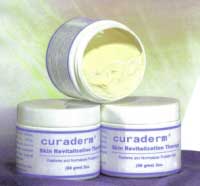Why can sunscreen protect against sunshine?
 We all know that if you leave the skin exposed to the sun, soon the skin will turn red, so it can be painful for a long time. People spend the day and night with the sea, the skin darkens because of the sun and wind. That is the phenomenon of skin aging before age as a result of the excessive tolerance of ultraviolet rays of sunlight.
We all know that if you leave the skin exposed to the sun, soon the skin will turn red, so it can be painful for a long time. People spend the day and night with the sea, the skin darkens because of the sun and wind. That is the phenomenon of skin aging before age as a result of the excessive tolerance of ultraviolet rays of sunlight.
Ultraviolet light has the ability to kill bacteria, but it also damages cut cells of the skin. If mild, red rashes, irritation, if severe, water blisters even darken and cause skin cancer.
In sunscreen, in addition to oil and water like other normal creams, adding sunscreen can reflect ultraviolet rays . The earliest manufactured sunscreen, containing solid powder like: oxidized zinc, talcum, flax, titanium oxidation. They all have effective ultraviolet sun protection.
 Later, sunscreen has more UV absorbing material. They are complex organic substances capable of strongly absorbing ultraviolet rays. Like P.lamino bendoic acid numb ester. It can absorb 99% of ultraviolet rays shining on the skin. So it is ideal for sun protection.
Later, sunscreen has more UV absorbing material. They are complex organic substances capable of strongly absorbing ultraviolet rays. Like P.lamino bendoic acid numb ester. It can absorb 99% of ultraviolet rays shining on the skin. So it is ideal for sun protection.
Especially, it has been discovered that some plants, flowers and fruits contain some liquid capable of absorbing ultraviolet rays. For example, cucumber oil or aloe vera fluid can be added to cosmetics to be made into sunscreen, sunscreen and sunscreen. Those who work outdoors for a long time should apply sunscreen to protect their skin.
- Food has natural sun protection effect
- Interesting mysteries about sunscreen
- FDA claims: Sunscreen tablets are not as good as you think
- People who have to say 'no' to sunscreen
- The truth needs to know about sunscreen
- Experts warn of risk from 'homemade' sunscreen
- Most of us are making serious mistakes when using sunscreen
- Video: Automatic sunscreen for seafarers
- Nearly three-quarters of sunscreens do not work as advertised
- The first country banned sunscreen to protect corals
- Tree sunscreen withstands Antarctic summer
- Use sunscreen when your baby can prevent cancer later
 'Barefoot engineer' invents a pipeless pump
'Barefoot engineer' invents a pipeless pump Process of handling dead pigs due to disease
Process of handling dead pigs due to disease Radiometer
Radiometer Warp Engine: Technology brings us closer to the speed of light
Warp Engine: Technology brings us closer to the speed of light